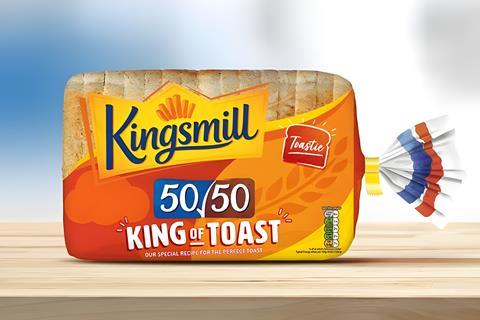
Kingsmill has vowed to remove whole grain claims from its marketing following a complaint made to the Advertising Standards Authority by the Real Bread Campaign.
The Real Bread Campaign challenged a claim on Kingsmill’s website, which stated that its 50/50 bread contained “50% of your daily whole grain in two slices”.
It complained that the claim was based on USDA’s Dietary Guidelines for Americans rather than official UK guidance.
“The term ‘whole grain’ does not appear in the Great Britain Nutrition & Health Claims Register, so using it in this context breached retained Regulation (EC) No.1924/2006 on nutrition and health claims made on foods,” it asserted.
Before deciding to complain to the ASA, the campaign had suggested to Kingsmill that the company replace the marketing claim based on ‘whole grain’ with a factual statement of fibre content, namely: ‘12.7% of your recommended daily dietary fibre in two slices’.
However, this recommendation would not have been legally compliant, because for EU/UK there is no labelling reference intake for fibre in law. This is laid out in Regulation (EU) No.1169/2011 on the provision of food information to consumers.
As Kingsmill owner Allied Bakeries “already assured” the ASA it will remove the claim from its advertising, the watchdog decided there was “little to be gained from continuing with a formal investigation, which would achieve that same outcome”.
“We can confirm that we have quickly and informally resolved a matter that the ASA raised with us regarding a statement on the Kingsmill website,” a spokeswoman for Allied Bakeries told The Grocer.
“Our focus remains on making sure that all the information Kingsmill shoppers may need is clearly and accurately declared on pack.
“We continue to be confident in the efficacy of all statements we make with respect to our Kingsmill 50/50 bread.”
Real Bread Campaign coordinator Chris Young said: “We thank the ASA for their intervention and we welcome the result.
“This serves as a reminder of the value of legal standards and underlines our long-standing assertion that the term ’whole grain’ needs defining in law.”



















No comments yet